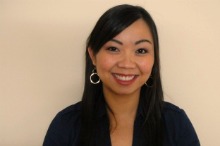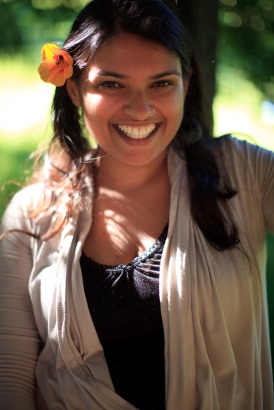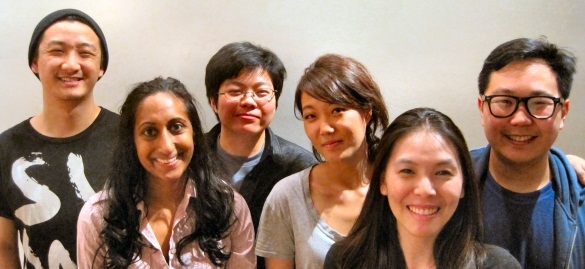Champions of Change Blog
Making A Difference Starts With Acceptance and Understanding
Posted by on April 5, 2012 at 12:36 PM EDT
It is a great honor to be selected as a "Champion of Change" through the White House Initiative on Asian Americans and Pacific Islanders. As a doctoral student, studying to be a clinical psychologist, I would like to take this opportunity to continue the dialogue about reducing the stigma associated with mental health concerns. Generally, when someone announces that he or she has been diagnosed with cancer or another health condition, that person is met with sympathy and concern. Yet, if the same person proclaims that he or she has a mental illness such as schizophrenia, the audience may tense up and eyes start to wander about uncomfortably. That person often ends up feeling ashamed, confused and loneley, without comfort and unwavering support from loved ones. I believe the stigma associated with mental health diagnoses and with seeking service is acutely profound in the Asian American and Pacific Islander (AAPI) community.
Everyone has a story to share. Once we start sharing our stories with one another, we may find that we have more in common that we thought. We may realize that we are not alone and that we are a part of a community. Our stories are personal, and mine includes my family. When I recently asked my father what made it difficult for him to talk about mental illness with me, he responded that it was because he could not see “it.” He stated that if I had a pimple or a health condition, he could see it visually or through test results. With cyclothymia, a mood disorder, my father said it was “in my head,” and he felt powerless to help me. He said that by not talking about it, he had hoped that it would go away in time. Has it gone away? I do not know. I do know, however, that I am successfully going through my doctoral program, advocating for mental health parity at conferences and volunteering at a program called Standing Against Global Exploitation Project (SAGE), which intervenes in the exploitation of women. I am also a dedicated volunteer at the Richmond Area Multi-Services (RAMS, Inc), a multi-ethnic, multilingual community mental health program, and Santa Clara County’s Ethnic and Cultural Community Advisory Committees (ECCAC). I may not have an ongoing condition of cyclothymia, but even if I do, it is only one of my many life experiences. It does not own me or define who I am.
Once a Sun, Always a Sun
Posted by on April 5, 2012 at 12:28 PM EDT
My commitment to the Philadelphia Suns is powered by my relationships with those in the organization. Harry Leong, the patriarch of the Suns, first drew me in when he said, "Sure, as long as you can get enough girls to come." His conditional agreement to my desire to start a ladies' basketball team sparked what would become 10 years of his mentorship and my leadership. By handing me the freedom to create, Harry empowered me to make things happen.
The Suns aims to: teach personal responsibility; instill values of teamwork, commitment and integrity; and provide a safe place to try, fail and try again. The organization is now in it's 40th year and serves more than 500 youth and young adults annually. Through a powerful combination of community-building and goal-setting from a committed volunteer network, the Suns have been able to foster a home for the Asian American youth of Philadelphia to grow into passionate individuals and future leaders.
I didn't discover the Suns until late high school when I reconnected with my Chinatown neighborhood. What I found in the Suns was an organized avenue for Asian American youth to partake in sports. Such an organization is significant, especially in the tough urban public school system of Philadelphia -- Asian boys often discount themselves from their high school tryouts and Asian girls sideline themselves as spectators. Unsure of their athletic adequacy, they simply choose not to play.
When I Speak My Community Is Listening
Posted by on April 5, 2012 at 12:11 PM EDT I have come to believe over and over again that what is most important to me must be spoken, made verbal and shared, even at the risk of having it bruised or misunderstood. –Audre Lorde
I have come to believe over and over again that what is most important to me must be spoken, made verbal and shared, even at the risk of having it bruised or misunderstood. –Audre LordeTo share in my personal growth as a first generation, working class, queer, Samoan spoken word poet/community activist, and explain how I found power in my voice the moment I realized I could use it to save myself and my community, I need to be able to speak and write in my own vernacular. My own language. To know that even if I don’t use these words grammatically correct in one reader’s eyes, it doesn’t mean that I’m wrong for speaking this way. Who’s to say that I’m wrong? According to what standards? And who wrote those standards? And who were those standards intended for? And who did they leave behind in thought?
If I can’t deconstruct and reclaim language in the ways necessary to my growth, if I can’t ask questions about why things are the way they are in society, and why is it that historically, people from my community are always suffering from some kind of injustice, then there will be no use for my voice. I know this is my duty because I’ve been mentored to believe that if I’m not telling my own story, then someone is going to tell it for me. My journey as a spoken word poet has enabled me to create the connections between the different dimensions of my identity and my purpose in this struggle for social justice and critical consciousness, all because I was finally able to find my voice and speak -- and teach others to do the same, especially our youth.
Dreaming Big: Pain is Temporary, Quitting is Forever
Posted by on April 5, 2012 at 12:04 PM EDT
My father came to America with a few hundred dollars and taught us to dream big. He always wanted me to enter the political field, but instead I became a comedian. He passed away two years ago but I know he is proud that I still made it to the White House as a "Champion of Change."
In 2000, I founded a Korean American talent show called Kollaboration and poured my blood, sweat and tears into it. Some people said it wouldn’t last. We are now in our 12th year. Kollaboration draws over 20,000 people annually in 13 cities and counting.
The reason why the show exploded was because we have humble, passionate leaders in each city who volunteer their time out of love to make it happen. One of the most powerful forces in the world is a team that works toward a common goal and doesn't quit until they've succeeded. One of the main reasons why Kollaboration went to another level was a team member that I met in 2004. I met my one of my close friends, Roy Choi, who solidified our organization as 501(c)3 non profit organization and guided the direction of the movement, from Korean American, to Asian Asian American, which was one of the best things that could have happened. Kollaboration's mission is empowerment through entertainment and is now widely recognized as "game changer" in the Asian Pacific Islander movement.
Creating Connections and Inspiring People Begins and Ends with a Story
Posted by on April 5, 2012 at 12:00 PM EDT
As an artist and illustrator, I am incredibly honored to be a Champion of Change. In a country rich with diverse stories -- my story is one that is linked to the concept of storytelling itself.
I came to the United States when I was four months old. I grew up in a large Indian family in a small town outside of Los Angeles. Being Indian-American has its benefits and challenges. My family stressed the importance of education but faltered when it came to supporting creativity. At an early age I was a reader; I devoured books. I wanted to be a writer but I also wanted to draw. Filling the pages of sketchbooks was a happy pastime. My parents encouraged me to pursue typically secure and safe majors, but I chose literature. At the University of California, Santa Cruz, where I received my degree, I struggled with the desire to make my family proud while remaining true to myself. After years in the non-profit sector, I turned to art. I realized that the combination of art and literature allowed me to create work that tells a story.
My art career was not seen as a path to success and I could see my family's growing concern. The challenge isn't the lack of success stories in the arts nationwide, rather it's the lack of strong, successful, female Asian-Americans in the arts. There was no role model I could name to reassure my family that a person like myself could make a living through art. The problem is two-fold: an absence of Asian female voices in the artist community means it is difficult to believe art is a path to success; in addition, families and communities are reluctant to support what they cannot understand. However, if our community continues to hesitate encouraging aspiring creatives it will not change.
Learn more about , ServiceStriving for Lesbian, Gay, Bisexual and Transgender Visibility in our Asian American Communities
Posted by on April 5, 2012 at 11:56 AM EDT
The Asian Pride Project (APP) is honored to be selected as a White House Champion of Change.
APP is a multimedia platform that aims: to foster greater visibility, pride, acceptance, unity and harmony for all lesbian, gay, bisexual, and transgender (LGBT) Asians & Pacific Islander (API) people in our families, cultural communities and beyond -- no matter where we are. We believe in the power of sharing, connecting, and relating to give API families and communities the support they need when struggling with the challenges of our sexual and gender identities in the API cultural context.
This project was borne out of a hope to create opportunities for connection and communication through written stories, letters, essays, poetry, graphics, video clips, photos and art. In 2009, a small group of activists discussed the lack of resources and support for Asian & Pacific Islander (API) family members of lesbian, gay, bisexual and transgender (LGBT) people. While many members were "out" to friends, few were "out" to their families, a common experience of Asian and Asian Americans who identify as lesbian, gay, bisexual or transgender. A combination of societal stigma and the lack of culturally-relevant, language-specific resources for our families to use made the struggle for acceptance even more difficult for families struggling to accept their "out" children.
- &lsaquo previous
- …
- 119
- 120
- 121
- 122
- 123
- 124
- 125
- 126
- 127
- …
- next &rsaquo
White House Blogs
- The White House Blog
- Middle Class Task Force
- Council of Economic Advisers
- Council on Environmental Quality
- Council on Women and Girls
- Office of Intergovernmental Affairs
- Office of Management and Budget
- Office of Public Engagement
- Office of Science & Tech Policy
- Office of Urban Affairs
- Open Government
- Faith and Neighborhood Partnerships
- Social Innovation and Civic Participation
- US Trade Representative
- Office National Drug Control Policy
categories
- AIDS Policy
- Alaska
- Blueprint for an America Built to Last
- Budget
- Civil Rights
- Defense
- Disabilities
- Economy
- Education
- Energy and Environment
- Equal Pay
- Ethics
- Faith Based
- Fiscal Responsibility
- Foreign Policy
- Grab Bag
- Health Care
- Homeland Security
- Immigration
- Innovation Fellows
- Inside the White House
- Middle Class Security
- Open Government
- Poverty
- Rural
- Seniors and Social Security
- Service
- Social Innovation
- State of the Union
- Taxes
- Technology
- Urban Policy
- Veterans
- Violence Prevention
- White House Internships
- Women
- Working Families
- Additional Issues

